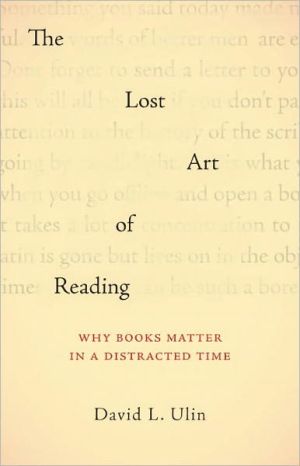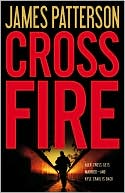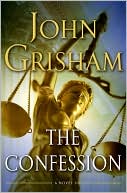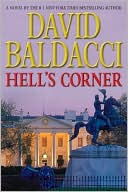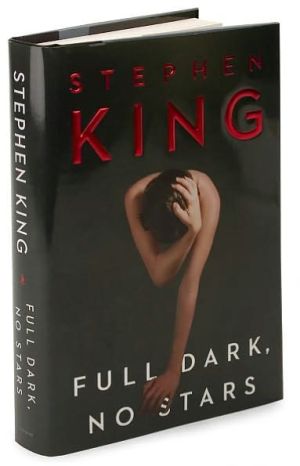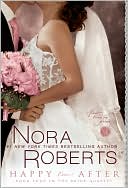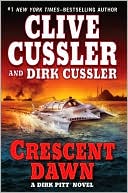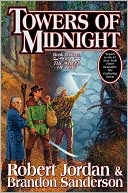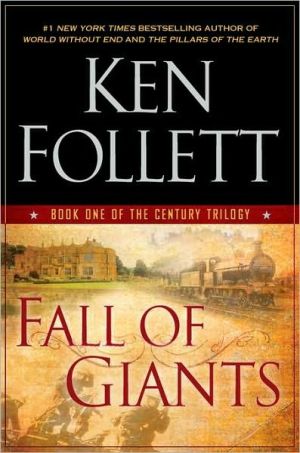The Lost Art of Reading: Why Books Matter in a Distracted Time
Reading is a revolutionary act, an act of engagement in a culture that wants us to disengage. In The Lost Art of Reading, David L. Ulin asks a number of timely questions - why is literature important? What does it offer, especially now? Blending commentary with memoir, Ulin addresses the importance of the simple act of reading in an increasingly digital culture. Reading a book, flipping through hard pages, or shuffling them on screen - it doesn't matter. The key is the act of reading, and...
Search in google:
Reading is a revolutionary act, an act of engagement in a culture that wants us to disengage. In The Lost Art of Reading, David L. Ulin asks a number of timely questions — why is literature important? What does it offer, especially now? Blending commentary with memoir, Ulin addresses the importance of the simple act of reading in an increasingly digital culture. Reading a book, flipping through hard pages, or shuffling them on screen — it doesn’t matter. The key is the act of reading, the seriousness and depth. Ulin emphasizes the importance of reflection and pause allowed by stopping to read a book, and the focus required to let the mind run free in a world that is not one's own. Far from preaching to the choir, The Lost Art of Reading is a call to arms, or rather, pages.Publishers WeeklyExpanding on a 2009 essay, Ulin, former book review editor of the Los Angeles Times, addresses the act of reading and its place in our information overloaded age. Ulin relies mainly on his own experiences as a loyal reader--specifically a recent attempt to reread The Great Gatsby alongside his son Noah's high school English class--which goes devastatingly wrong ("You'd fail if you were in my class," Noah pronounces). Ulin uses this incident to frame the larger narrative, fluently addressing the art and craft of literature, the reader's participation, the writer and the writing--and the act of rereading. He addresses in greater depth distractions from reading, specifically the ever-present seductions of technology, and the experience of reading on a screen. Moving toward an optimistic note, Ulin argues that technology can enlarge us, citing Rick Moody and Jennifer Egan as writers who embrace this ever-changing landscape. Ulin's short book not only puts forth a strong and passionate case for reading but also compiles a reading list of writers and critics (e.g., Anne Fadiman, Joan Didion, David Shields) who have influenced Ulin and who are well worth reading. (Nov.)
\ Publishers WeeklyExpanding on a 2009 essay, Ulin, former book review editor of the Los Angeles Times, addresses the act of reading and its place in our information overloaded age. Ulin relies mainly on his own experiences as a loyal reader--specifically a recent attempt to reread The Great Gatsby alongside his son Noah's high school English class--which goes devastatingly wrong ("You'd fail if you were in my class," Noah pronounces). Ulin uses this incident to frame the larger narrative, fluently addressing the art and craft of literature, the reader's participation, the writer and the writing--and the act of rereading. He addresses in greater depth distractions from reading, specifically the ever-present seductions of technology, and the experience of reading on a screen. Moving toward an optimistic note, Ulin argues that technology can enlarge us, citing Rick Moody and Jennifer Egan as writers who embrace this ever-changing landscape. Ulin's short book not only puts forth a strong and passionate case for reading but also compiles a reading list of writers and critics (e.g., Anne Fadiman, Joan Didion, David Shields) who have influenced Ulin and who are well worth reading. (Nov.)\ \
